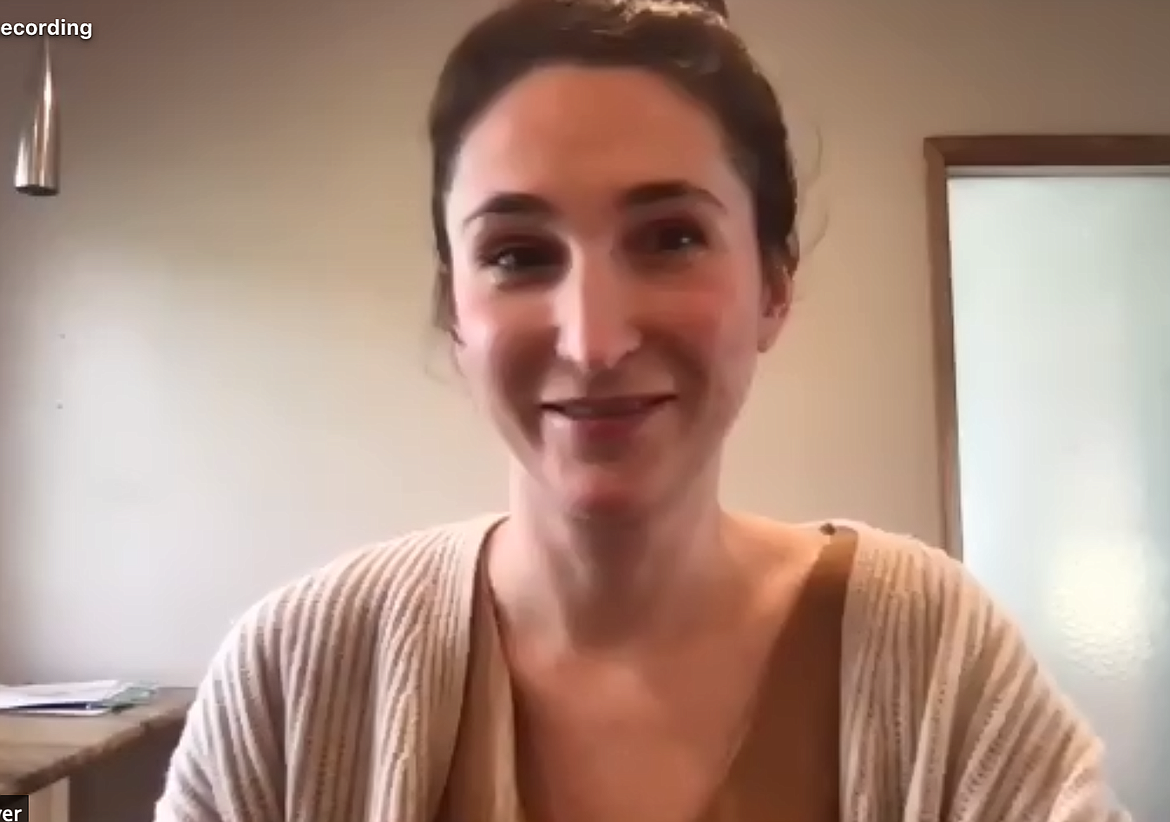Scholar: Kootenai County has tough choices ahead
A professor at the University of Idaho told a group of local citizens Friday that the choices confronting Kootenai County surrounding a change in government are neither clear-cut nor easy.
Markie McBrayer, assistant professor of political science at the University of Idaho, was the keynote speaker at Friday’s Kootenai County Democrats meeting, where she addressed the alternate forms of government the county is exploring.
“This presentation is not going to give you clear answers as to what works best,” McBrayer told the virtual crowd to start her hour-long presentation. “Be prepared to come out having more questions than you came in with.”
The debate over alternate forms of government has become a front-and-center issue regionally in recent months. On Monday, the Kootenai County Commissioners nominated a nine-person board to explore the effectiveness of the county’s government.
McBrayer said the responsibility of choosing whether or not to change will ultimately come down to the people.
“It’s up to the citizenry of Kootenai County to see how this figures into y’all’s decision calculus,” she told the group.
McBrayer was invited to speak to the local Democrats on the history and studies behind the debate, where she explained reaches back to Woodrow Wilson, who advocated that “administration lies outside the proper sphere of politics.” This lies in sharp contrast to his scholarly rival, Dwight Waldo, who wrote that “Doubt has arisen about both the possibility and the desirability of making a sharp separation of power or division of function between the deciding and the executing agencies of government.”
McBrayer reduced the conflict down to a simple outline.
“There are different government structures,” she said. “Really, there’s a lot of variety, but we can boil it down to three different forms.”
Historically, McBrayer stressed, county citizens thinking about a change will choose between commissioners, a commissioner-appointed administrator and a commissioner-elected executive. She didn’t advocate for either form, but she did say each presented their own advantages and challenges.
“Having a county manager or administrator typically creates longer time horizons for policy development, implementation and management,” she said. “They’re more interested in long-term economic development, because they’re not running for office.”
McBrayer also cited some of the historical motivators behind municipalities changing their forms of government. Sometimes, she explained, the change comes in the wake of disaster, such as in Galveston, Texas after a destructive hurricane in 1900.
“They experienced an enormous hurricane that decimated the town,” McBrayer said. “As a consequence, they had to rebuild everything. With a manager in charge, they’d be better at implementing and managing policy.”
While Kootenai County remains out of the path of hurricanes, is is going through a crisis another Texas town has faced: unprecedented growth. McBrayer said Austin went through a similar growth spurt that had residents consider a new form of government.
“Austin was not as busy as it is now, but a lot of people have moved there in the past 10 to 20 years,” McBrayer said. “It’s become very unpleasant to visit. The roads have become packed. It’s become very busy...They’re talking about removing a city manager and putting in elected officials, so they can be held more accountable. They’re experiencing many of the same problems Kootenai County is.”
Kootenai County has been debating a change from its Commissioners-Manager hybrid off and on since the 1990s. The commissioners are expected to announce the first meeting of the new group soon. Groups like Kootenai County’s are usually born out of changing demographics, McBrayer insisted.
“This is because more places have experienced significant population growth within a county,” she said. “As the population grows, policy becomes more complex.”

